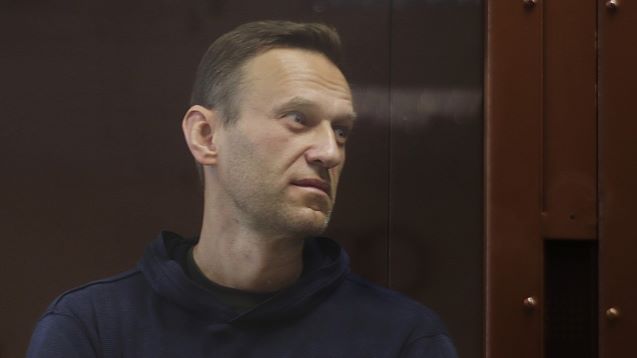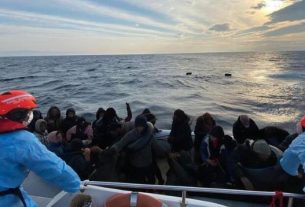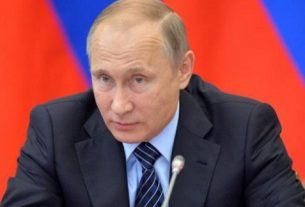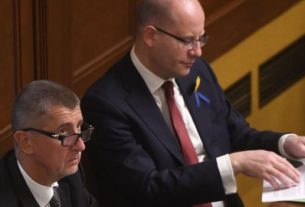Imprisoned Russian opposition leader Alexei Navalny has told supporters not to lose the will to resist, after his jail term was extended to 19 years.
Mr Navalny was found guilty of founding and funding an extremist organisation. He denies the charges.
He was already serving a nine-year term for parole violations, fraud and contempt of court. The charges are widely viewed as politically motivated.
The trial was held in a remote penal colony, where he has been since 2021.
The Kremlin’s most vocal critic will serve his time in a “special regime colony”, which Russian state prosecutors had been calling for.
Even more restrictive than a high security colony, such prisons are normally reserved for dangerous criminals, re-offenders and those with life imprisonment.
There he is likely to face greater isolation, with further restrictions on communications with the outside world.
He could also receive fewer visitors than he is used to, including his family and defence team, and may face longer periods of solitary confinement.
After the verdict, in a message to supporters posted for him on X (formerly known as Twitter) Mr Navalny remained defiant. “You, not me, are being frightened and deprived of the will to resist. Putin must not achieve his goal. Do not lose the will to resist,” he wrote.
For this court case the phrase “behind closed doors” felt like an understatement.
Alexei Navalny was tried in the high security prison in which he’s currently incarcerated; the proceedings were closed to the press and the public.
But for the verdict the BBC was allowed into Penal Colony Number 6 in the town of Melekhovo, 150 miles east of Moscow, where a hall was turned into a makeshift courtroom.
Along with other journalists we crammed into a small room dubbed the “press centre” to watch events on a video screen. We weren’t allowed into the makeshift courtroom itself (a prison hall) where the verdict would be announced.
As he entered the courtroom and sat down at a table, Alexei Navalny looked relaxed. For him there was no drama about this situation: in a message posted for him yesterday on social media Russia’s most prominent opposition figure had made it clear he’d been fully expecting a “Stalinist” sentence.
There was a picture on the video screen. But the audio feed from the courtroom was of poor quality and intermittent.
When the judge pronounced Mr Navalny guilty and passed sentence, it wasn’t immediately clear to the journalists watching and listening how long the new prison sentence was.
Later, Mr Navalny himself confirmed the figure, in the social media message posted for him.
“Nineteen years in a special regime colony. The figure doesn’t mean anything. I fully understand that, like many political prisoners my sentence is for life. Life is measured either by my lifespan or that of the regime.”
The new sentence “raises serious concerns about judicial harassment and instrumentalisation of the court system for political purposes in Russia,” UN human rights chief Volker Turk said in a statement.
“Putin is trying to frighten as many Alexei supporters as he can”, Mr Navalny’s press secretary Kira Yarmysh said of his sentencing.
“We have to put all our efforts in trying to get rid of Putin, and this will mean that Alexei will be free,” she added.
For more than a decade, Mr Navalny sought to expose corruption at the heart of Russian power. His video investigations have received tens of millions of views online.
A charismatic campaigner, he seemed to be the only Russian opposition leader capable of mobilising people in large numbers across Russia to take part in anti-government protests.
But in 2020, he was poisoned in Siberia by what Western laboratories later confirmed to be a nerve agent.
A later report by the investigative outlet Bellingcat and Russian news site The Insider implicated several agents of Russia’s internal security service, the FSB, in the attack.
After recovering from the attack, Mr Navalny returned to Russia in 2021 despite warnings that he could face arrest. He was immediately arrested upon arrival at Moscow’s Vnukovo airport.__BBC.com





